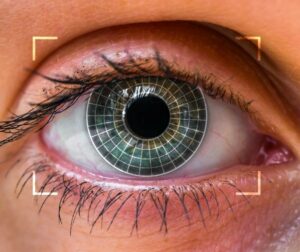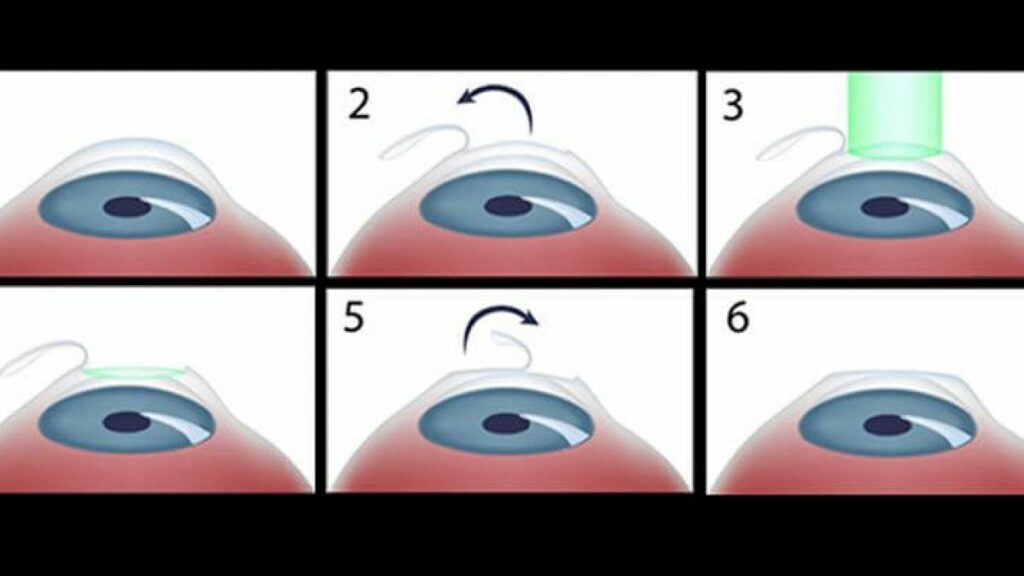Are you curious about lasik surgery but unsure of what it is and how it works? In this article, we will provide a comprehensive overview of lasik surgery, its symptoms, benefits, and how much it costs. So whether you’re considering getting lasik or just want to learn more about the procedure, read on!
Contents
- 1 What Is Lasik Surgery?
- 2 How Lasik Surgery Works?
- 3 What To Expect After Lasik Surgery
- 4 How Does Laser Vision Correction Work?
- 5 How Much Does It Cost?
- 6 Pros and Cons
- 7 Does Lasik Permanently Fix Eyes?
- 8 Is The Lasik Painful?
- 9 How Long Does Lasik Last?
- 10 When is Lasik Too Late?
- 11 Who Is Not A Candidate For lasik?
- 12 What Disqualifies You From Getting Lasik?
- 13 How Often Is Lasik Unsuccessful?
- 14 Why Is Vision Not Perfect After Lasik?
- 15 Conclusion
What Is Lasik Surgery?

Lasik surgery is a type of laser eye surgery that uses a computer-controlled excimer laser to reshape the cornea, which helps improve your vision. The goal of lasik is to reduce or eliminate your need for corrective eyewear such as glasses or contact lenses.
The surgery is performed on an outpatient basis and generally takes only a few minutes to complete.
How Lasik Surgery Works?
It works by correcting your eyes’ vision using a series of tiny cuts made in your cornea (the front part of your eyeglasses). After lasik surgery, your doctor will position a mask over your face, which will emit a laser beam that cuts through the layers of tissue in your cornea. The laser vaporizes the top layer of cells, freeing the underlying proteins to heal and strengthen. This process creates a much smoother surface on which light can pass, improving your vision.
What To Expect After Lasik Surgery
- Following it you may experience some common postoperative side effects such as dry eyes, blurry vision, or pain at the surgical site. Vision may take up to two weeks to return to normal after lasik surgery, so it is important to follow all post-operative instructions from your doctor.
- In addition to recovering from lasik surgery itself, many patients find that they need to adjust their lifestyle habits in order to best support their new vision capabilities. For example, some people find it helpful to wear sunglasses or wrap their eyes tightly
How Does Laser Vision Correction Work?
Laser vision correction (LVC) is an advanced form of eye surgery that uses lasers to correct nearsightedness, farsightedness, and astigmatism. The surgery is performed on an outpatient basis under general anesthesia.
During LVC surgery, the surgeon uses a laser to reshape the cornea and correct the vision problems caused by these conditions. In some cases, a small cut is made in the top layer of the eye to allow the laser to reach the cornea more easily.
The laser used in LVC is called a femtosecond laser. Femtosecond lasers are very powerful and have proven to be very effective at correcting vision problems. They also cause minimal damage to surrounding tissue.
How Much Does It Cost?
It is a type of eye surgery that uses lasers to remove the cornea and reshape the surface of the eye. Lasik can improve your vision by correcting nearsightedness, farsightedness, and myopia (nearsightedness). It is one of the most common types of eye surgery, and it is also one of the most affordable.
The typical cost for lasik surgery ranges from 50,000 to 70,000 INR. However, these prices may vary depending on your location and the specific procedure you choose. Insurance usually covers part or all of the cost of lasik surgery. If you have diabetes, be aware that some insurance companies do not cover lasik surgery because it can lead to blindness. The cost of LVC surgical procedures varies depending on the severity of your condition and your location.
If you are considering lasik surgery, be sure to talk with your doctor about your options and costs.
Pros and Cons
There are various Pros and Cons of lasik surgery:
It is a popular procedure that can improve your vision. It involves the use of an excimer laser to correct your vision by reshaping the surface layer of your eye. There are several benefits, including:
1. Improved Vision: Lasik can improve your vision by correcting nearsightedness, farsightedness, and astigmatism.
2. Reduced Eye Stress: Lasik can reduce eye stress because it eliminates the need for glasses or contact lenses.
3. Quick Recovery Time: Most patients experience excellent results within days after lasik surgery.
4. Minimal Side Effects: The most common side effects of lasik include minor discomfort and dry eyes. These side effects typically disappear within a few days after lasik surgery.
There are also some potential drawbacks to lasik surgery. These include:
1. Risk of Serious Eye Damage: Lasik may cause permanent damage to your eyes if the procedure is performed incorrectly.
2. Permanent Vision Loss: Some people may experience significant vision loss after lasik surgery, and this risk is greater for people who have severe refractive errors.
3. High Costs: Lasik procedures can be expensive, and insurance may not cover all of the costs.
4. Scarring: Many people experience temporary mild to moderate eye scarring after lasik surgery. This scarring may decrease your attractiveness, and it can take several months for the scarring to fade.
Does Lasik Permanently Fix Eyes?
It is possible for the benefits of LASIK surgery to diminish over time. About 10-12% of patients nationwide will need enhancement surgery because of anatomical changes to the eye/eyes.
Patients who are concerned about their long-term outcomes should speak with their doctor about their options.
Most people who have LASIK see excellent long-term results. Approximately 95% of patients are satisfied with the results, which include improved vision in both near and far distances, better night vision, and reduced reliance on glasses or contacts. While some subtle changes may occur after surgery, these are usually mild and usually last for a few months to a couple of years. If you experience any major changes such as an increase in eye pain or difficulty seeing in one or both eyes, please contact your doctor immediately.
Is The Lasik Painful?
While you might still feel a little pressure during the procedure, this surgery is not painful. Before the procedure, your surgeon will place numbing eye drops in both of your eyes.
During the surgery, your doctor will make a small cut in your eye and use a laser to reshape your cornea. Some people might feel a brief sting or tingling, but it is generally short-lived. Most people report minimal pain and no lasting discomfort after LASIK Surgery.
How Long Does Lasik Last?
In most cases, it will last a lifetime. However, approximately 10-12 percent of patients nationwide will need enhancement surgery due to anatomical changes to their eyes.
It may last anywhere from around six months to several years or more, depending on your individual case and the specific surgical procedure performed.
When is Lasik Too Late?
It is currently not possible to treat some vision conditions affecting adults over 40 , even though there is no age limit. The conditions are Presbyopia or blurry near vision that typically occurs around the age of 40. Cataracts or glaucoma.
If you are over 40 and have any of the conditions listed above, you may not be able to have LASIK surgery because the benefits may not outweigh the risks.
For several reasons, most LASIK eye surgeons consider 25-40 to be the ideal age range for LASIK eye surgery candidates. A stable prescription is one of the hallmarks of a good LASIK candidate. By the age of 25, prescriptions for eyeglasses and contact lenses have probably stabilized
Who Is Not A Candidate For lasik?
As a result of many autoimmune diseases, patients may not be good candidates. Dry eyes may not heal well and have a higher risk of infection after LASIK. The results of it are often affected by conditions like diabetes, rheumatoid arthritis, lupus, glaucoma, or cataracts.
Patients with significant corneal scarring may also not be good candidates for it.
What Disqualifies You From Getting Lasik?
Patients with autoimmune diseases (e.g., lupus, rheumatoid arthritis), immunodeficiency states (e.g., HIV), and diabetes, as well as certain medications (e.g., retinoids and steroids), may not heal properly after undergoing refractive surgery.
How Often Is Lasik Unsuccessful?
It is generally considered to be a safe procedure with a low complication rate, but it does carry some risks of complications and side effects. With a complication rate of less than 1%, It is one of the safest elective surgeries available today.
Why Is Vision Not Perfect After Lasik?
While your vision will improve the day after surgery, it may be a bit blurry or hazy right afterward. It usually takes about 2 – 3 months before your vision stabilizes and your eyes are fully healed. However, these temporary vision difficulties usually subside after a few weeks.
If you have significant blurriness or difficulty seeing close objects, your doctor may recommend a follow-up visit. If your vision does not improve within 6 weeks after surgery, it is important to consult with your doctor.
Conclusion
If you’re considering lasik surgery, it’s important to understand what the procedure is and how it works. After reading this article, you’ll know everything there is to know about lasik surgery, including how much it costs and whether or not it’s right for you. If you still have questions about lasik surgery, our team at Mantracare can help answer them. Schedule a consultation today!
Lasik surgery is a safe 10-minute procedure to help you get rid of glasses. MantraCare offers the most advanced Lasik options. If you have any questions on lasik surgery feel free to reach out to us at +91-9711116605. We provide effective Lasik surgery in Delhi
